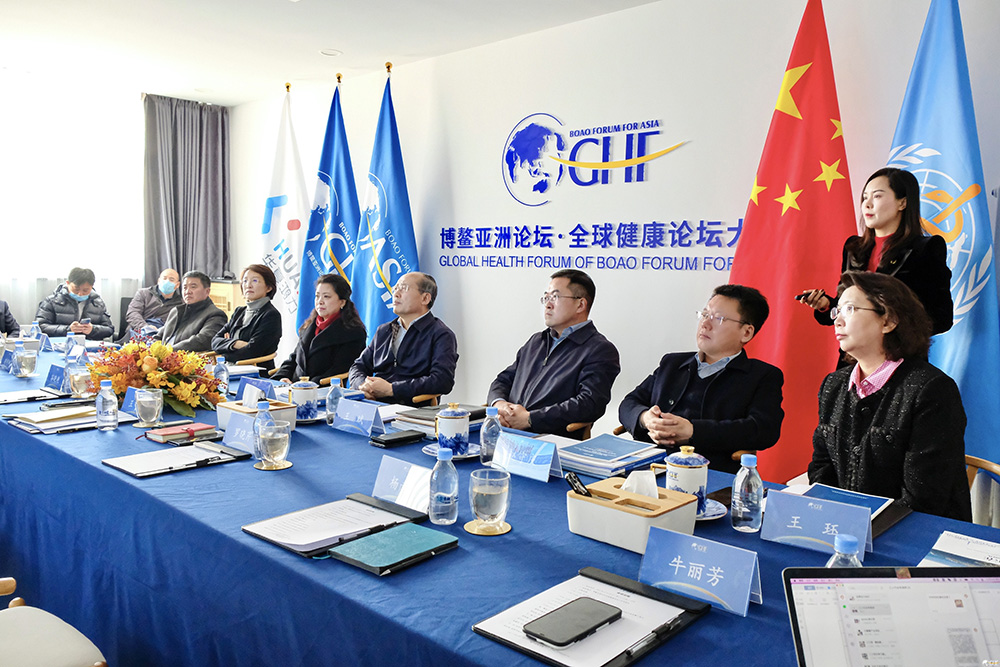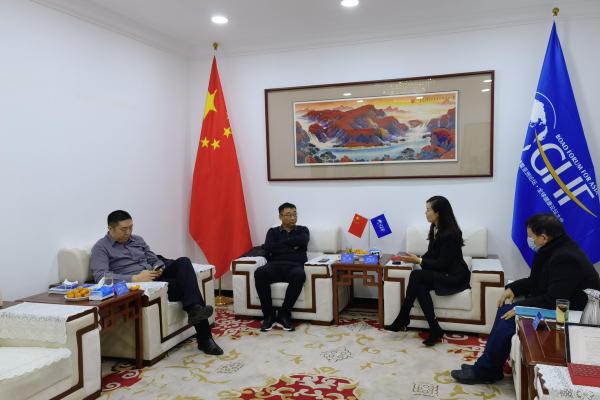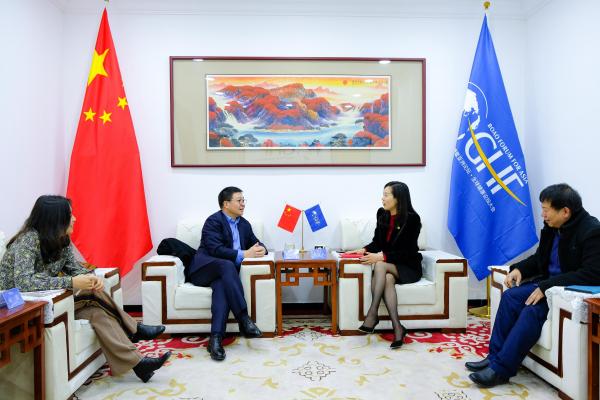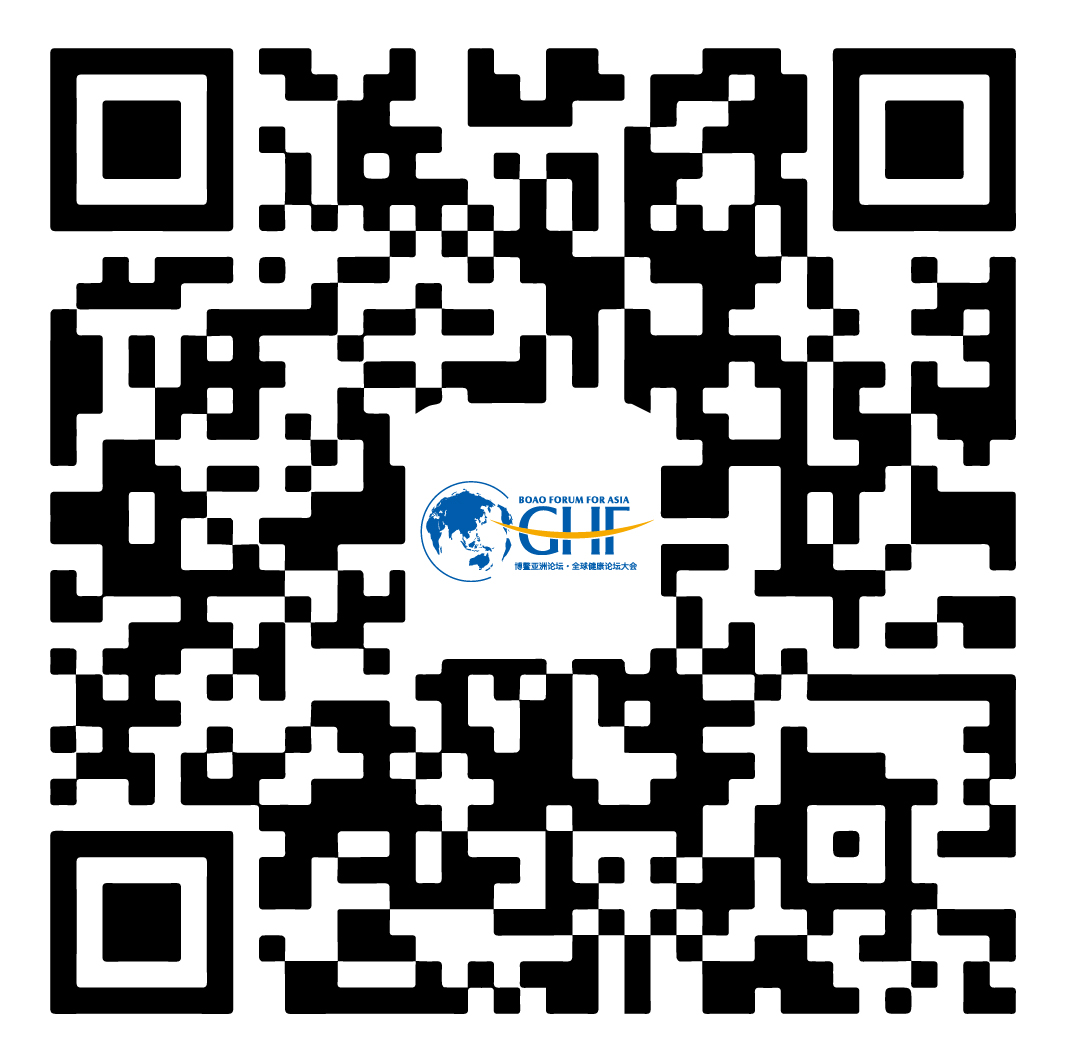The World Economic Forum virtual event "The Davos Agenda" was held from 25th to 29th January, 2021. The event mobilized the world’s top academics, politicians, business, youth, and civil society leaders to engage in addressing the most pressing issues on the global agenda.
At the Davos Agenda, the World Economic Forum also launched a number of initiatives. The “Tackling Alzheimer's” session, organized by the World Economic Forum, was held online on 25th January. The session featured the official launch of the “Davos Alzheimer’s Collaborative (DAC)”, for global public and private institutions. Dr. Margaret Chan, the Founding Dean of the Vanke School of Public Health at Tsinghua University and President of Global Health Forum, was invited and delivered a speech in the online session.
The “Tackling Alzheimer's” session, was hosted by the Global CEO Initiative on Alzheimer’s Disease (CEOi). Among the other invited speakers were Dr. Haruo Naito, Representative Corporate Officer and Chief Executive Officer, Eisai Co. Ltd, and Dr. Andrea Pfeifer, CEO of AC Immune SA. The session was moderated by George Vradenburg III, Convener, Global CEO Initiative on Alzheimer's Disease.
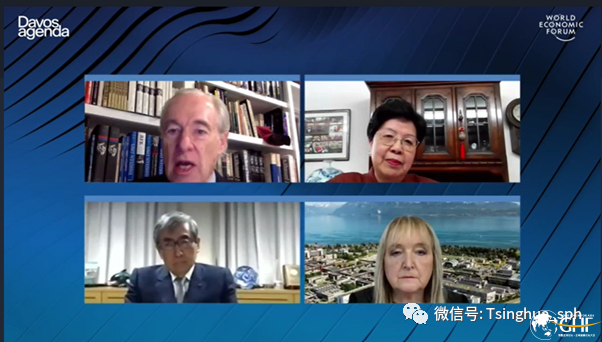
Moderator George Vradenburg III and speakers:
Dr. Margaret Chan, Dr. Haruo Naito, Dr. Andrea Pfeifer
George Vradenburg III said in his opening speech that with 9.9 million new cases of dementia globally each year, the collective action took during the COVID-19 pandemic is urgently in need. What policies, practices, and partnerships have contributed to the development of new diagnostics for the treatment of Alzheimer's disease? DAC, on behalf of patients and families, works to build a global response to the growing pandemic of Alzheimer's disease. Through a collective global response, DAC will help governments manage this public health crisis and reduce the burden of Alzheimer’s for families in both developed and developing countries.
Dr. Margaret Chen stated in her speech that DAC is an important catalyst for global action. In the fight against Alzheimer's disease, middle-income and low-income countries must be involved. However, most of the research and efforts were took in Europe and North America at present, which is far from enough. In this regard, DAC plays an important role of promoting more countries from the developing world and low-and middle-income countries in Africa as well as in Asia to join this crucial initiative. The immediate involvement of related industry is also anticipated working together with institutions to support clinical trials, so as to work towards a cure for Alzheimer’s disease.
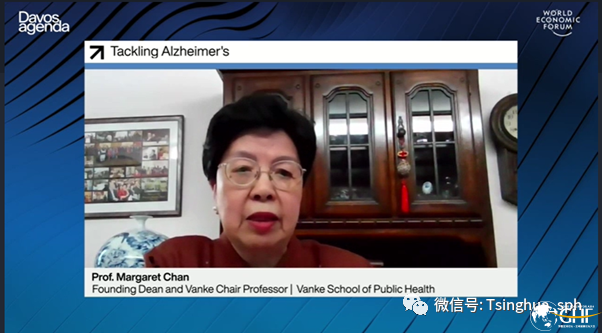
Dr. Margaret Chan delivers a speech online
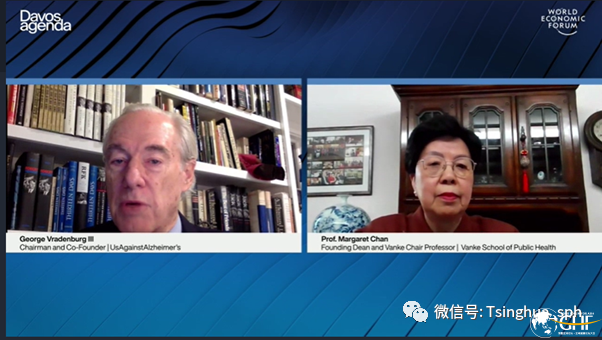
Moderator George Vradenburg III dialoguing with Prof. Margaret Chen
Dr. Haruo Naito, Representative Corporate Officer and Chief Executive Officer, Eisai Co. Ltd, mentioned that patients’ participation is essential for the treatment of Alzheimer’s disease. Medical institutions will be able to give more proper suggestions to patients with more access to data of patients. Naito Haruo also suggested that developing countries should vigorously develop digital technology, in order to enhance the efficiency and capability of Alzheimer treatment.
Since the proposal of DAC at Davos 2020, DAC has gained support for a $700 million, 6-year plan to accelerate and diversify innovation in tackling Alzheimer’s. The program aims to accelerate the innovation in Alzheimer's disease treatment and provide diversified options . Meanwhile, DAC is committed to accelerate the pace and scale of global Alzheimer’s disease cross-sectoral collaboration. This is the only way to make progress which will bring profound changes to the community, society and economy.

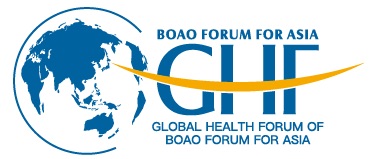

 News
News
 Partner application
Partner application Download
Download Hot News
Hot News
